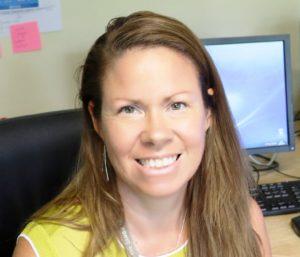 Our October Immunologist of the Month is Associate Professor Jayne Sutherland, Head of the TB Platform and Immunology laboratory at the Medical Research Council (MRC) Unit The Gambia at London School of Health and Tropical Medicine (LSHTM). A/Prof Sutherland completed her Doctoral studies and first (2 years) Post-Doc in Melbourne (Monash University) where her research focused on cancer immunotherapy. She then moved to London for a 2-year Post-Doc at University Colleg London (UCL) looking at immunotherapy for leukaemia. She moved to MRC in 2006 as a Post-Doc researcher on a Bill and Melinda Gates foundation project on TB biomarkers. “This was a complete change of research direction which has its pros and cons but it’s taken me to where I am now”. A/Prof Sutherland has won numerous prizes including Young Cancer Researcher of the year, MRC centenary award and several travel grants.
Our October Immunologist of the Month is Associate Professor Jayne Sutherland, Head of the TB Platform and Immunology laboratory at the Medical Research Council (MRC) Unit The Gambia at London School of Health and Tropical Medicine (LSHTM). A/Prof Sutherland completed her Doctoral studies and first (2 years) Post-Doc in Melbourne (Monash University) where her research focused on cancer immunotherapy. She then moved to London for a 2-year Post-Doc at University Colleg London (UCL) looking at immunotherapy for leukaemia. She moved to MRC in 2006 as a Post-Doc researcher on a Bill and Melinda Gates foundation project on TB biomarkers. “This was a complete change of research direction which has its pros and cons but it’s taken me to where I am now”. A/Prof Sutherland has won numerous prizes including Young Cancer Researcher of the year, MRC centenary award and several travel grants.
Why did you choose to work in MRC Unit the Gambia? I was offered a Post-Doc position at Oxford with Prof Sarah Rowland Jones who was moving to Gambia as head of the virology department. However, I decided to stay in London to pursue similar work to my PhD/early Post-Doc. When another opportunity came up, Sarah sent me the job advert and the rest is history. It is difficult changing research direction when you’re a Post-Doc as it affects your ability to apply for fellowships (ie no track record in new research direction) but I have been at the unit for 13 years now and it’s been a great journey. I think the TB research community are more team-oriented than the cancer research community. I have been incredibly lucky to have internationally based mentors from the start who I still collaborate with and who provide me with constant support. This is very important for career development.
What are your research interests and why? I took up the position of Post-Doc immunologist for the BMGF grand challenges in TB project in 2006. Whilst I did not have the background in TB, Immunology techniques are easily translatable and I was able to generate a lot of data quite early on, due to the excellent cohorts and flow cytometry facilities at the MRC Unit. I am passionate about TB as I feel that we can directly help people with our work on a daily basis.
Could you please comment on the WHO End TB Strategy and progress made towards achieving its goals? I think it has become readily apparent that research is critical in combating TB. The reason we’ve not had a new vaccine for 100 years and still rely on minimally 6 months of daily drugs is because the funding for TB is significantly less than that for HIV and malaria (and a drop in the ocean compared to that for cancer). TB is an incredibly complex disease so to develop the best vaccines and therapeutics, we need to understand the interplay of different immune subsets at different time-points, with different TB strains and host genetics and with different environmental pressures. Whilst we are progressing (For example, 2018 and 2019 have been bumper years for TB vaccine development), the only way to achieve the EndTB goals is to have more money for the fundamental research that is required.
What would you say is the greatest achievement you have made so far? Scientifically my greatest achievements are reflected in my patents and in my comprehensive analysis of the immune responses to TB in our long-running TB case-contact cohort in The Gambia. One of my patents is on the use of sputum host markers for development of a rapid diagnostic test for TB which would be of great public health benefit.
Leadership wise, my greatest achievements have been the capacity building within my 50-strong team and our strong collaborative links with the National TB program. Both of these aspects are essential for sustainable health systems development.
What is your advice to young upcoming immunologists like me? Pursue an area of research you are passionate about. This will help keep you motivated even if your results are not what you were hoping! Keep working hard – there will be set-backs but if you are passionate and driven, you will achieve your goals. Finally, I highly recommend linking with decent mentors early on. They are fundamental in providing support when needed.
Interview by Eunice Kiamba










